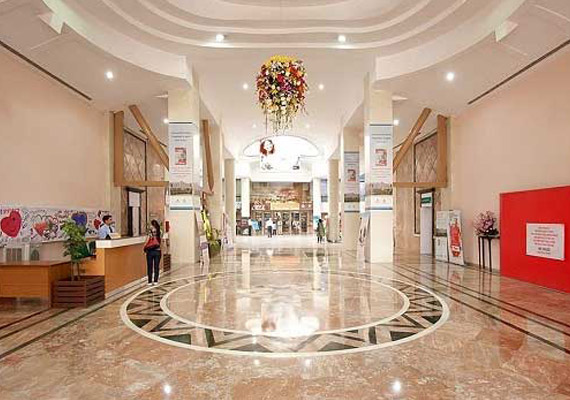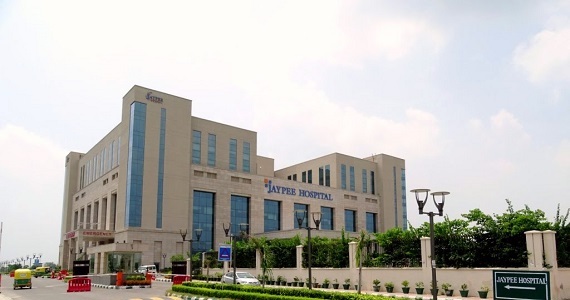AICD Insertion Treatment in India
treatment
starting from
Introduction
An Automatic Implantable Cardioverter Defibrillator (AICD), commonly known as an Implantable Cardioverter Defibrillator (ICD), is a sophisticated medical device designed to monitor and regulate heart rhythms. It is primarily used to treat individuals at risk of life-threatening arrhythmias, such as ventricular tachycardia and ventricular fibrillation. The AICD insertion procedure involves the surgical placement of the device under the skin, near the heart, to detect abnormal heart rhythms and deliver corrective electrical impulses when necessary. This article explores the causes behind the need for AICD insertion, the diagnostic process, the treatment options, the cost of the procedure in India, and concludes with a consideration of the device's significant impact on cardiac health and quality of life.
Causes Requiring AICD Insertion
1. Arrhythmias: AICD insertion is most commonly recommended for patients who have experienced or are at risk of developing life-threatening arrhythmias, such as ventricular tachycardia (rapid heartbeats originating in the lower chambers) and ventricular fibrillation (chaotic and irregular heartbeats). These conditions can lead to sudden cardiac arrest, which can be fatal if not treated promptly.
2. Previous Cardiac Events: Individuals who have survived a sudden cardiac arrest or have a history of serious arrhythmias may be candidates for AICD insertion as a preventive measure to manage and respond to future events effectively.
3. Cardiomyopathy: Patients with certain types of cardiomyopathy, such as hypertrophic cardiomyopathy or dilated cardiomyopathy, which may increase the risk of arrhythmias, might require an AICD for monitoring and intervention.
4. Congenital Heart Conditions: Some individuals with congenital heart conditions, particularly those at risk of dangerous arrhythmias, may benefit from AICD insertion to reduce the risk of sudden cardiac death.
Diagnosis and Pre-Procedure Evaluation
The decision to undergo AICD insertion is based on a thorough assessment of the patient's medical history, cardiac condition, and risk factors for arrhythmias. Diagnostic tests, including electrocardiograms (ECGs or EKGs), echocardiograms, stress tests, and electrophysiological studies (EPS), are conducted to evaluate the patient's heart rhythm and determine the necessity of an AICD.
The pre-procedure evaluation involves a detailed discussion with the cardiologist, where the patient's medical history, lifestyle, and potential risks associated with the implantation are considered. The cardiologist will educate the patient about the benefits and potential complications of the procedure, enabling the individual to make an informed decision.
Treatment: AICD Insertion Procedure
The AICD insertion procedure is typically performed under local anesthesia with sedation or under general anesthesia. The surgeon makes a small incision below the collarbone and creates a pocket to accommodate the AICD device. Leads (thin, insulated wires) are threaded through blood vessels and placed in the heart's chambers. These leads detect the heart's electrical signals and deliver electrical shocks when necessary to restore normal heart rhythms. The AICD is then placed in the pocket, and the incision is closed. The procedure usually takes a few hours, and patients may need to stay in the hospital for a brief period for observation.
Post-Procedure Recovery and Follow-Up
After AICD insertion, patients are monitored for any complications and receive instructions on wound care and device management. Regular follow-up appointments with the cardiologist are essential to ensure the AICD functions correctly and to adjust settings as needed. The AICD battery life can last several years, and when it nears depletion, a replacement procedure will be necessary.
Cost of AICD Insertion in India
The cost of AICD insertion in India varies depending on the type of AICD device used, the hospital's location, the surgeon's experience, and any additional medical procedures required. On average, the cost of AICD insertion in India can range from ?4,00,000 to ?8,00,000 (Indian Rupees). It is essential for patients to consult with their cardiologists and hospitals to obtain accurate and up-to-date cost estimates.
Conclusion
AICD insertion plays a critical role in managing life-threatening arrhythmias and reducing the risk of sudden cardiac death. It is a sophisticated medical device that offers real-time monitoring and intervention to ensure optimal cardiac health for individuals at high risk of arrhythmias. The decision to undergo AICD insertion requires a comprehensive evaluation of the patient's cardiac condition and risk factors, coupled with an understanding of the benefits and potential risks of the procedure.
With AICD insertion, patients can experience a significant improvement in their quality of life, knowing that they have a medical device safeguarding their heart and offering them the chance to lead a more active and fulfilling life. As technology advances and medical expertise grows, AICDs continue to pave the way for enhanced cardiac health, furthering the mission of promoting a healthier and safer world for individuals with cardiac conditions.
How It Works
Need help in organizing medical travel to India?











